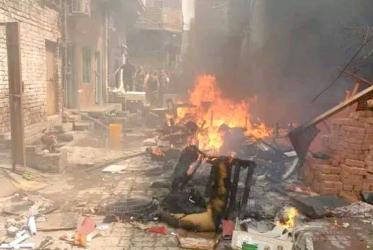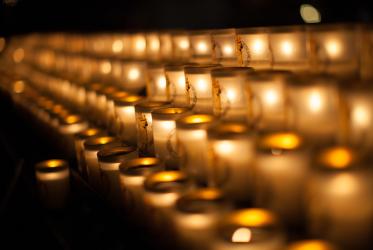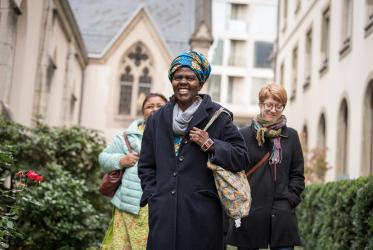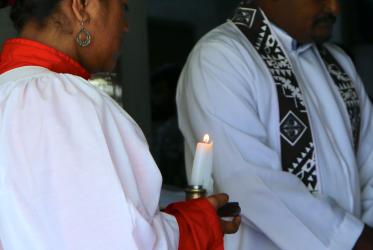Letter to H.E. Commandante Hugo Chávez Frías, the President of the Bolivarian
Republic of Venezuela, 20 January, 2003
Your Excellency,
It is with great sorrow that we have been following daily international news
reports of the fratricidal struggle taking place in Venezuela at present. The confrontation
has reached tragic extremes.
Concerned by the situation in your country, and on the invitation of the churches
and ecumenical organizations in Venezuela, a delegation from the World Council
of Churches, in cooperation with the Latin American Council of Churches and
the National Christian Council in the United States, visited Venezuela in September
2002. The delegation produced an extensive report on what they called, using
biblical terms, "what we have seen and heard". The report begins by stating:
"In the conviction that, through the events now going on in the land of Simón
Bolivar, the Latin American hero, God is speaking to the people of Venezuela and
of Latin America in general, we declare to you what we have seen and heard', so
that, as the letter of the Apostle John says, the fellowship of the church may
increase (cf. 1 John 1:3). We believe our councils must renew their support and
encouragement for the work that the Venezuelan churches are doing for peace and
reconciliation." (p. 1 of the report).
The visit by the delegation from the three Councils included meetings with
various political figures (among them, the Vice-President of the Republic, Mr
José Vicente Rangel), as well as representatives of civil society, the military and
of course, religious groups. From various discussions with Christian leaders it was
clear that, regardless of whether they were against or in favour of the political
process in Venezuela, "there was a striking agreement among all of them with
regard to the role to be fulfilled by the Christian churches. This agreement came
out essentially in words like truth, forgiveness, reconciliation, justice, peace and
compassion." (pp. 12-13 of the same report).
We know of the profoundly humane values which inspire the Constitution of
the Bolivarian Republic of Venezuela, notably as expressed in its founding principles
(Arts. 1-7).
It is precisely on the basis of these principles that we appeal to you, your
Excellency, and to the opposition and the people of Venezuela at large, to try to
find a peaceful way out of the present situation, within the framework of the
Constitution and the existing laws, and with full respect for human rights and
democratic institutions.
We also urge the churches to continue their work for peace and reconciliation
among all the men and women of Venezuela. Like Jesus Christ himself, we encourage
them to keep listening to the cry of the poor and excluded so that they may
discern the paths that lead to true peace with justice.
Comprising more than 300 churches in 120 countries, our Council has witnessed
fratricidal struggles that have sown death and destruction and hatred in
many different places. A number of countries in Latin America have known decades
of dictatorship, violence and confrontations. Conflicts have likewise left dreadful
sequels in Africa, Asia, Eastern Europe and the Middle East. Reconciliation in
truth and justice following these conflicts has proved to be an arduous and costly
process that is not free of contradictions.
We cannot end this letter without also mentioning the ethical responsibility
of the mass media in such situations. They play an essential role in strengthening
democracy. Their activity must be guided by commitment to truth and information
and they must not give in to the pressures brought to bear by different
power groups.
Your Excellency, may we assure you and all the people of Venezuela of our
prayers for peace in your country.
Yours truly,
Peter Weiderud,
Director
Churches Commission on International Affairs



